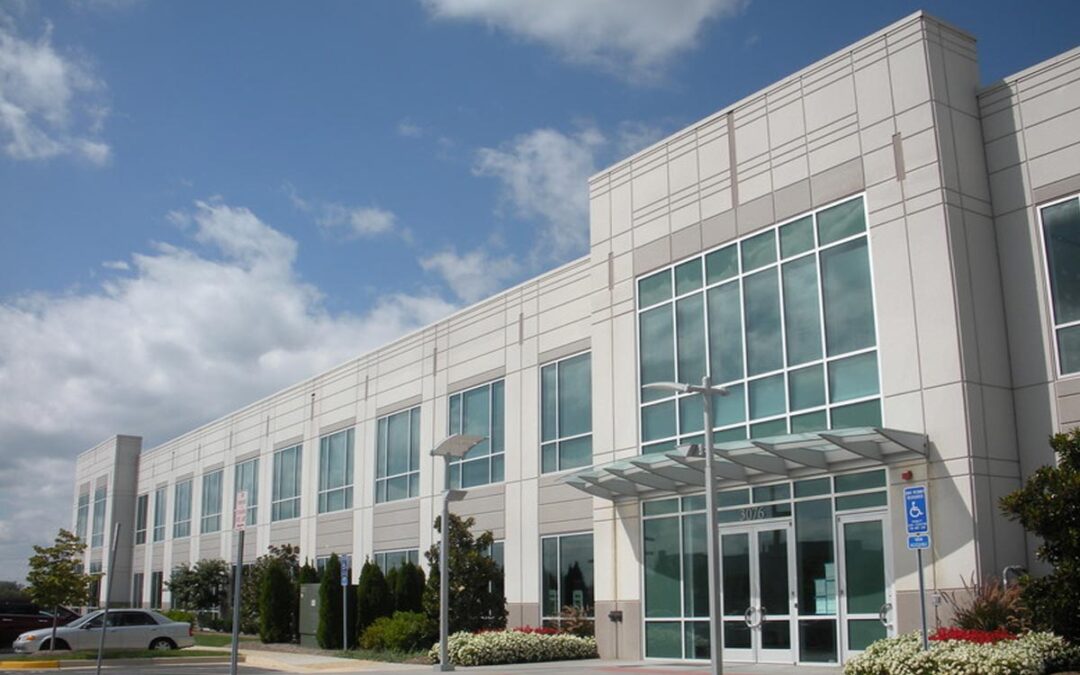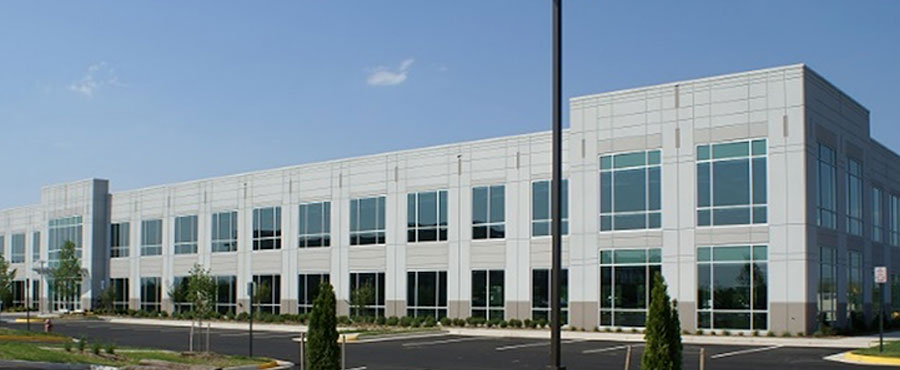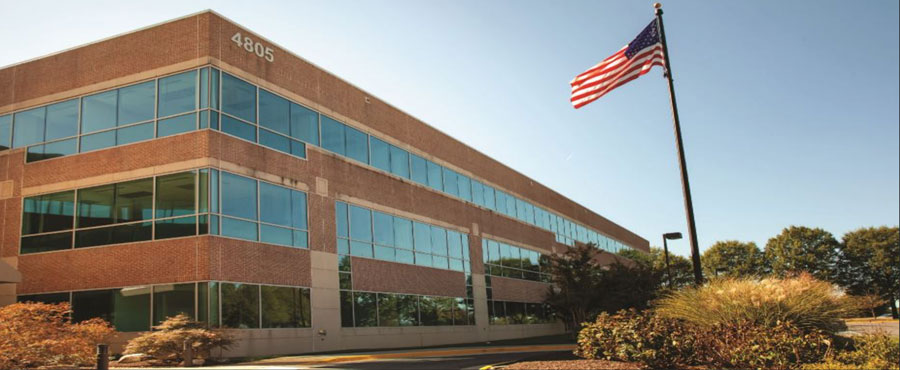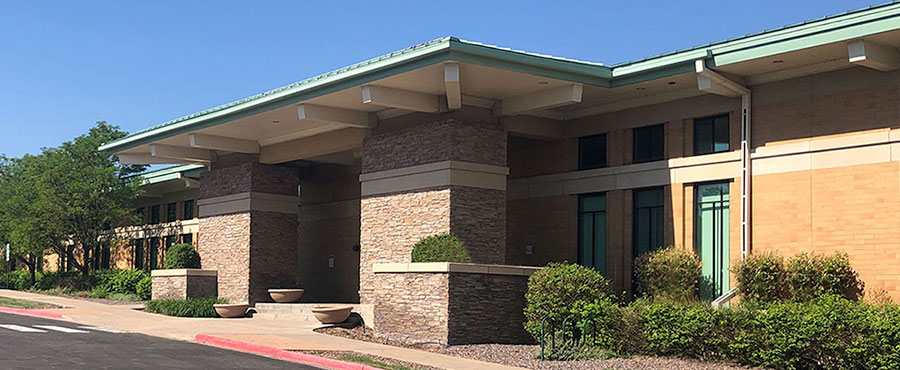Mission
Westway Services Group LLC provides multiuse Sensitive Compartmented Information Facilities (SCIF) and secure communication infrastructures to small business, the U.S. Department of Defense (DoD), and the DoD contractor community. This cost-efficient alternative solution to operating their own facility enables our customers to support mission essential operations to the U.S. National Intelligence and DoD communities. We are a 100% conflict of interest free company which allows us to provide our full range of secure office solutions to all businesses.
History
Beginning in 2008, Westway has supported hundreds of small businesses that are contracted with the Intelligence Community (IC) and DoD agencies. This creates jobs and growth within the community, while ensuring the Government has access to the companies and workforce necessary to support essential development activities. Many of these businesses started with a single cubicle which allowed them access to compete for awards. As a result of leasing space at Westway, many of these startup companies have been awarded contracts and grown their businesses within our facility.
In December 2019, the House Permanent Select Committee on Intelligence expressed concern about impediments for companies with cleared personnel being able to perform work for U.S. government entities, which limits the IC’s access to innovative products and services. For example, companies without access to a Sensitive Compartmented Information Facility (SCIF), which includes many small businesses and non-traditional contractors, find it difficult to perform classified work for the IC. Construction and accreditation of SCIF spaces may be cost-prohibitive for small businesses and contractors.[1]
Since 2010, Westway has worked closely with the IC in providing unique, tailored solutions to support our nation’s most critical missions. Westway has developed and shown the flexibility and creativity to adapt and modify our offerings in line with the changing requirements of our diversified client base.
Westway’s executive leadership and its board of advisors has a combined total of over 290 years of experience throughout the DOD and IC and is able to deploy those years of experience effectively for results.
Westway has and continues to provide a solution to these concerns through our agreement and sponsorship with the National Reconnaissance Office (NRO) and National Geospatial Agency (NGA) among many other IC, DoD and other government agencies.
By providing a cost-efficient alternative to the large upfront and continuous expense of operating and maintaining a secure facility, Westway enables each company utilizing its workspaces to focus primarily on its mission objectives and contract compliance.
Current Operational Buildings
3074 Centreville Road, Herndon, Virginia | 612 Seats
-
Building is at 100% occupancy
-
124 companies are leasing space
-
Leases are a mixture of single seat (cubicles), offices and suites
-
121 are small business including Veteran Owned, Service-Disabled Veteran Owned, Minority Owned, Native American Owned, Alaskan Native Owned, and Women Owned Small Businesses.
-
Current tenants are comprised of IC, DoD, industry partners and cleared defense contractors. (These percentages are estimates due to Westway being conflict of interest free and not involved in client contracts or proposals.)
4805 Stonecroft Blvd, Chantilly, Virginia | 472 Seats
- Fully accredited
- Building has been renovated to full compliance with ICD 705 standards.
710 N. Tucker Blvd., St. Louis, Missouri
Entire 7th Floor | 436 Seats
- Accreditation sponsor committed and accreditation is in process
- Will feature both SCIF and secret collateral space
Future Locations
Aurora, Colorado | 497 Seats
- In discussion with potential accreditation sponsors
- Will feature secure conference rooms
What is the Future for Secure Facilities?
The way companies are accomplishing their missions in the post COVID-19 environment is evolving. With “social distancing” becoming the new normal, companies today require more space for day-to-day operations.
In the Congressional Record of December 2019, the Explanatory Material Statement on Intelligence Authorization Measures for Fiscal Years 2018, 2019, and 2020, submitted by the Chairman of the House Permanent Select Committee on Intelligence, addressed the sharing of SCIF space:
“Access to Sensitive Compartmented Information Facilities.
The committees remain concerned about impediments for companies with appropriately cleared personnel being able to perform work for government entities and the effects of these impediments on IC access to innovative products and services. For example, businesses without access to a Sensitive Compartmented Information Facility (SCIF), which includes many small businesses and non-traditional contractors, find it difficult to perform classified work for the IC. Construction and accreditation of SCIF spaces may be cost-prohibitive for small business and non-traditional government contractors. Additionally, SCIF construction timelines often exceed the period of performance of a contract. A modern trend for innovative and non-traditional government contractors is the use of co-working space environments. Additionally, public, and private entities are partnering to create emerging regional innovation hubs to help identify technology solutions and products in the private sector that can be utilized by the DoD and IC. These innovation hubs currently produce an agile, neutral, but largely unclassified, development environment. Therefore, the Committees directed the ODNI to submit the processes to the congressional intelligence committees on:
-
- Processes and procedures necessary to build, certify, and maintain certifications for multi-use sensitive compartmented facilities not tied to a single contract and where multiple companies can securely work on multiple projects at different security levels;
- Analysis of the advantages and disadvantages of issuing DoD Contract Security Specification (DD Form 254s) to facilities as opposed to contracts;
- Options for classified co-use and shared workspace environments such as innovation, incubation, catalyst, and accelerator environments;
- Pros and cons for public, private, government, or combination owned facilities that can operate at different classification levels; and,
- Any other opportunities to support companies with appropriately cleared personnel but without effective access to a neutral SCIF. ”[2]
As a result of the above the following was placed in NDAA:
“SEC. 1628. REQUIREMENTS RELATING TO MULTI-USE SENSITIVE COMPARTMENTED INFORMATION FACILITIES. (a) IN GENERAL.—In order to facilitate access for small business concerns and nontraditional defense contractors to affordable secure spaces, the Secretary of Defense, in consultation with the Director of National Intelligence, shall develop processes and procedures necessary to build, certify, and maintain certifications for multi-use sensitive compartmented information facilities not tied to a single contract and where multiple companies can securely work on multiple projects at different security levels. (b) DEFINITIONS. —In this section: (1) The term ‘‘small business concern’’ has the meaning given that term under section 3 of the Small Business Act (15 U.S.C. 632). (2) The term ‘‘nontraditional defense contractors’’ has the meaning given that term in section 2302 of title 10, United States Code.”
Westway is uniquely positioned to be the solution that addresses the concerns stated by the House Permanent Select Committee on Intelligence’s concerns because Westway is the pioneer that build the solution that addressed these concerns for the last 14 years. Currently, Westway is actively working with the DoD and both Houses of Congress to Institutionalize current evolving policies.
Other examples of movement to the “shared services” platform for SCIFs
The Office of Management and Budget (OMB) has issued a memo that updates the government’s shared services strategy to enhance service delivery and accountability, reduce duplication costs, and improve customer satisfaction. The strategy outlined in the memo directs the government to establish interagency standards and priorities for shared services, develop shared governance, centralize capabilities and performance expectations, as well as continue to accelerate the adoption of existing quality services.
The Shared Services Leadership Council, the governance structure for Federal shared services initiatives, recently approved the Department of Homeland Security to provide cybersecurity shared services to other government agencies.
On September 15th, 2020, The Defense Innovation Board had five recommendations for Secretary of Defense Mark Esper. One of those recommendations was:
“Department should continue to expand classified remote work options, while exploring novel approaches to classified work
-
- The DoD should consider creating a nationwide network of dedicated co-working or shared workspaces (e.g., regional SCIF hubs) for remote employees (who are properly credentialed and cleared) to work on or access classified materials.”[3]
Current policy provides SCIF and facility accreditation to individual contracts, and not to a turnkey operation serving multiple companies supporting multiple government agencies at different security classification levels. To be fully operational, the Westway turnkey model requires a paradigm shift in the government. A change from issuing DD form 254s per a single contract for one security classification level, to the use of an innovation hub or co-use facility providing services to multiple companies for contracts at various security levels should be studied. There are many benefits to the Westway turkey shared services model including that it:
- Provides government access to small, cleared businesses, including minority and woman-owned, meeting acquisition and competition goals.
- Provide space to government agencies who have an increased need due to new social distancing requirements or an increased workforce.
- Provides tenants with secure SCIF space, telephony, and networks to:
- Develop and submit proposals for classified contracts
- Communicate with Government personnel
- Perform classified tasks per contract(s)
- Access the centralized acquisition portal – The Acquisition Resource Center (ARC)
- Eliminates tenant needs for dedicated security, IT, and facility management personnel
- Permits tenants to grow and expand their businesses within the Westway footprint
- Smallest rentable space is one desk
- Largest rentable space is a suite configuration
- Allows different levels of classified work to be performed within a facility ranging from Secret to Top Secret/SCI
- Provides quick access for small businesses to a SCIF and secure communications so they can rapidly begin work once awarded a contract
- In sum, the Westway model provides:
- Small businesses the ability to reduce overhead rates and bid competitively with large private sector firms
- Reduced contractor costs via economies of scale which translate into cost reductions for government programs (estimated 20 – 30% reduction based on shared services best practices)
- Government agencies the ability to have a dedicated space for use when needed.
Conclusion
The IC and DoD communities are promulgating new physical security and communications security policies and procedures which allow for, and in fact encourage, the certification and accreditation of facilities versus companies. The myriad of benefits clearly accrue to and enhance the security of the nation. There is already a model for this: the 92,240 SF Westway facility in Herndon, Virginia. Through the tireless efforts of a seasoned staff, including many former cleared government officials, Westway has achieved unique success at overcoming the impediments to proving the value of this model. Over time, Westway has facilitated over 70 new contractors entering the national security sector. Today over 120 companies and multiple U.S. government agencies occupy space in its Herndon, Chantilly and St. Louis facilities where robust secure communications are provided. Westway is devoted to assisting in the paradigm shift to enable contractors and government entities access to additional secure space options.
[2] Congressional Record Volume 165, Number 199 (Thursday, December 12, 2019)[House] [Pages H10237-H10254]
[3] Department of Defense Workforce: Competing for Digital Talent COVID-19 Lessons Learned, 20-S-2076, DTD 9/15/2020





